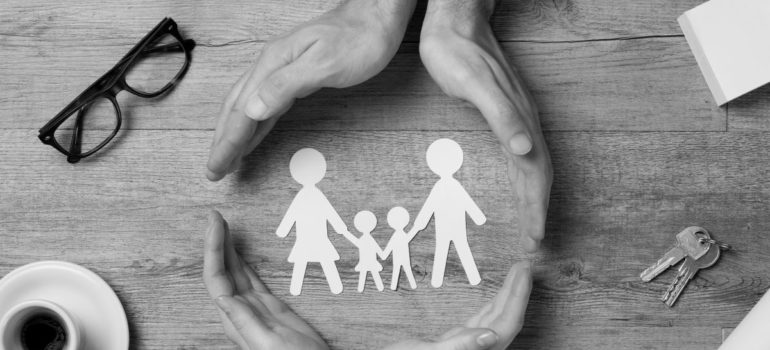Emergency fund explained & why it matters

You might already have special funds set up to save for retirement and your children’s education. And you might have another account to save for that special vacation. But do you have an emergency fund?
An emergency fund is money you set aside to pay for unexpected expenses or to pay your daily expenses if you lose your source of income.
The key word here is “unexpected.” Maybe your car needs a major repair, your refrigerator breaks down, or you lose your job. There are unplanned things you need to pay for, and an emergency fund is there to help you do that.
You may have other large expenses, such as new tires, vacations, or holiday gifts. You shouldn’t need to access your emergency fund for these expenses because you can anticipate and plan for them in your budget.
Do I really need an emergency fund?
Wondering if you really need an emergency fund? Absolutely! If the events of 2020 have taught us anything, it is that some things are beyond our control.
According to the annual BDO Canada Affordability Index, roughly half of all Canadians are living paycheque to paycheque. One month without income will put those households into a position where they cannot pay their rent or mortgage, and they may find themselves further and further in debt as they try to pay for essentials. This is where an emergency fund is valuable.
Think about it like insurance. You would never leave your house uninsured, because if something were to happen to it, the financial loss would be too great. An emergency fund protects you in much the same way by insulating you from financial hardship and helping you avoid additional high-interest debt.
The basics: how to start an emergency fund

When it feels like every dollar you have is going to bills, where do you find the money to start an emergency fund? The good news is, you don’t need to come up with all the money right away. Simply start saving.
First, go over your budget to determine how much you can afford to contribute to your emergency fund each month. There are many small ways you can cut back that will add up. Something as simple as making coffee at home can save enough for a small contribution to your fund, even if it’s just $25 per paycheque.
If you’re not sure where to start, there are budgeting tools available through the Financial Consumer Agency of Canada.
Next, talk to your bank about setting up a separate account and arrange for automatic transfers from your primary account. Treat the transfers like any other bill you need to pay. You can have a small amount come out each week or align the transfer with your paycheque. Decide what works best for you.
After your account is established, look for other opportunities to grow your savings, such as a bonus at work or a tax refund. Whenever you come into unexpected money, add it to your savings until you reach your goal.
How much does my emergency fund need?
Your emergency fund should equal three to six months of your basic monthly expenses. Basic expenses are those you must pay each month, such as rent or mortgage payments, groceries, utilities, insurance, taxes, and the minimum payments on debt. You would not include the items you could temporarily stop, such as retirement savings contributions, dining out, subscriptions, and recreational activities.
“Because savings accounts and other easily accessible investment options do not pay a lot of interest, you should think about occasionally topping up your savings to keep up with the cost of living.”
Three months or six? That depends on your situation. If you would qualify for employment insurance or have a second income in your household, you might be okay with three months of savings. If you’re single or have less stable income, and you would not qualify for unemployment benefits, consider saving more.
Once you reach your goal, you can leave the money alone. Every so often, check to see if it would still cover your monthly expenses. Maybe you moved or had a baby, and now you need more money to cover the basics each month. Because savings accounts and other easily accessible investment options do not pay a lot of interest, you should think about occasionally topping up your savings to keep up with the cost of living.
Emergency fund calculator
Emergency fund calculators help you determine how much you should save and how long it will take to reach your goal. Here are a couple of Canadian calculators: The Financial Consumer Agency of Canada
This site has a calculator to help you plan for any savings goal, including your emergency fund. Practical Money Skills Canada
This site provides financial literacy information as well as calculators, including one specific to emergency funds.
Is it wise to invest my emergency fund?

Three to six months of living expenses is a lot of money, and there is a debate as to whether you should invest your emergency fund. Remember, this is not your retirements savings; it’s a safety net.
The decision about how to invest your money should be made in consultation with your financial advisor. There are always new investment products coming out that you may be able to take advantage of without risking your money.
Here are a few things to consider as you make your decision:
- Easy access – Will you be able to get the money if you need it in a hurry?
- Risk – Some investments are riskier than others. Consider that many of the events that could cause you to lose your job are the same events that cause the stock market to fall. If you have your emergency fund in less stable investments, it may not be there when you need it.
- Growing your money – Of course, safer investments don’t offer as high a return. As mentioned above, interest on most savings accounts won’t keep up with inflation, but your emergency fund is there for peace of mind, not retirement.
The key is finding the balance between earning interest on the money and ensuring it is accessible when you need it. Remember, there’s no rule that says you need to have it all in one place. You could have a month or two of expenses in a high-interest savings account that pays a decent interest rate and could be easily accessed until you free up the rest of your money.
Some banks also have accounts that offer you perks that save you money in different ways, such as free services or paying the annual fee on your rewards credit card. And don’t forget about tax-free savings accounts (TFSA).
Is paying off debt with an emergency fund a good idea?
Debt versus savings. You may be wondering if you should use your emergency fund to pay off debt. It’s a delicate balancing act. Strictly by the numbers, assuming you don’t run into any emergencies, you save more by paying off high-interest debt (and it helps your credit score). However, money experts will also tell you that relying on credit to help in an emergency is risky, and to leave your emergency fund alone until you have an emergency.
If you don’t yet have an emergency fund, you should start contributing to it even if you are paying down debt. Once your debt is paid, you can make larger contributions to your savings.
Your mortgage broker is invested in your financial health. If you have questions about debt, savings, and your mortgage, they can guide you to appropriate resources.









